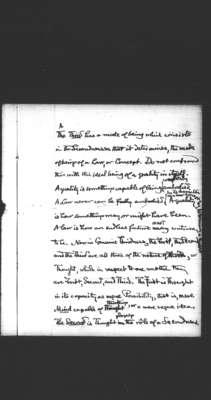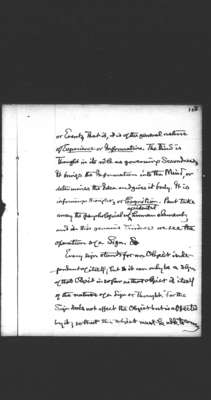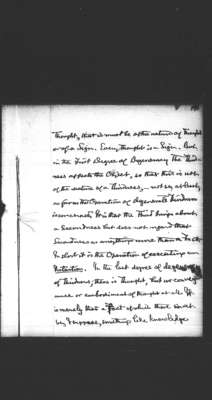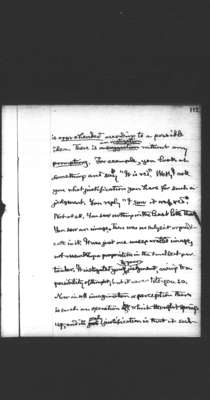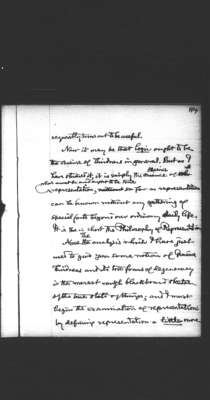Pages
76
A Third has a mode of being which consists in the Secondnesses that it determines, the mode of being of a Law, or Concept. Do not confound this with the ideal being of a quality in itself. A quality is something capable of being completely embodied. A Law never can be embodied in its character as a law except by determining a habit. A quality is how something may or might have been. A law is how an endless future must continue to be. Now in Genuine Thirdness, the First, the Second, and the Third are all three of the nature of thirds, or Thought, while in respect to one another they are First, Second, and Third. The First is Thought in its capacity as mere Possibility; that is, mere Mind capable of thought thinking, or a mere vague idea. The Second is Thought playing the rôle of a Secondness,
77
108
or Event. That is, it is of the general nature of Experience or Information. The Third is Thought in its rôle as governing Secondness. It brings the Information into the Mind, or determines the Idea and gives it body. It is informing thought, or Cognition. But take away the psychological or accidental human element, and in this genuine Thirdness we see the operation of a Sign.
Every sign stands for an Object independent of itself; but it can only be a sign of that Object in so far as that object is itself of the nature of a Sign or Thought. For the Sign does not affect the Object but is affected by it; so that the object must be able to convey
78
110
Thought, that is, must be of the nature of Thought or of a Sign. Every Thought is a Sign. But in the First Degree of Degeneracy the Thirdness affects the Object, so that this is not of the nature of a Thirdness,— not so, at least, as far as this Operation of Degenerate Thirdness is concerned. It is that the Third brings about a Secondness but does not regard that Secondness as anything more than a Fact. In short it is the Operation of executing an Intention. In the last degree of degeneracy of Thirdness, there is Thought, but no conveyance or embodiment of thought at all. It is merely that a Fact of which there must be, I suppose, something like knowledge
79
112
is apprehended according to a possible idea. There is a suggestion an instigation without any prompting. For example, you look at something and say, “It is red.” Well, I ask you what justification you have for such a judgment. You reply, “I saw it was red.” Not at all. You saw nothing in the least like that. You saw an image. There was no subject or predicate in it. It was just one unseparated image, not resembling a proposition in the smallest particular. It instigated you to your judgment, owing to a possibility of thought; but it never told you so. Now in all imagination and perception there is such an operation by which thought springs up; and its only justification is that it subsequently
80
114
turns out to be useful.
Now it may be that logic ought to be the science of Thirdness in general. But as I have studied it, it is simply the science of what must be and ought to be true representation, so far as representation can be known without any gathering of special facts beyond our ordinary daily life. It is, in short, the Philosophy of Representation.
The analysis which I have just used to give you some notion of Genuine Thirdness and its two forms of degeneracy is the merest rough blackboard sketch of the true state of things; and I must begin the examination of representations by defining representation a little more
